In the wake of the recent college admissions scandal, many people are wondering whether it actually matters what college you go to.
For these parents, it was extremely important that their child got into a prestigious school at all costs. Clearly, they didn’t go about it the right way, but the pressure to have their child attend an “elite” college was great enough to motivate them to take drastic measures.
But does your school even matter? Does attending an elite college actually lead to better outcomes after graduating?
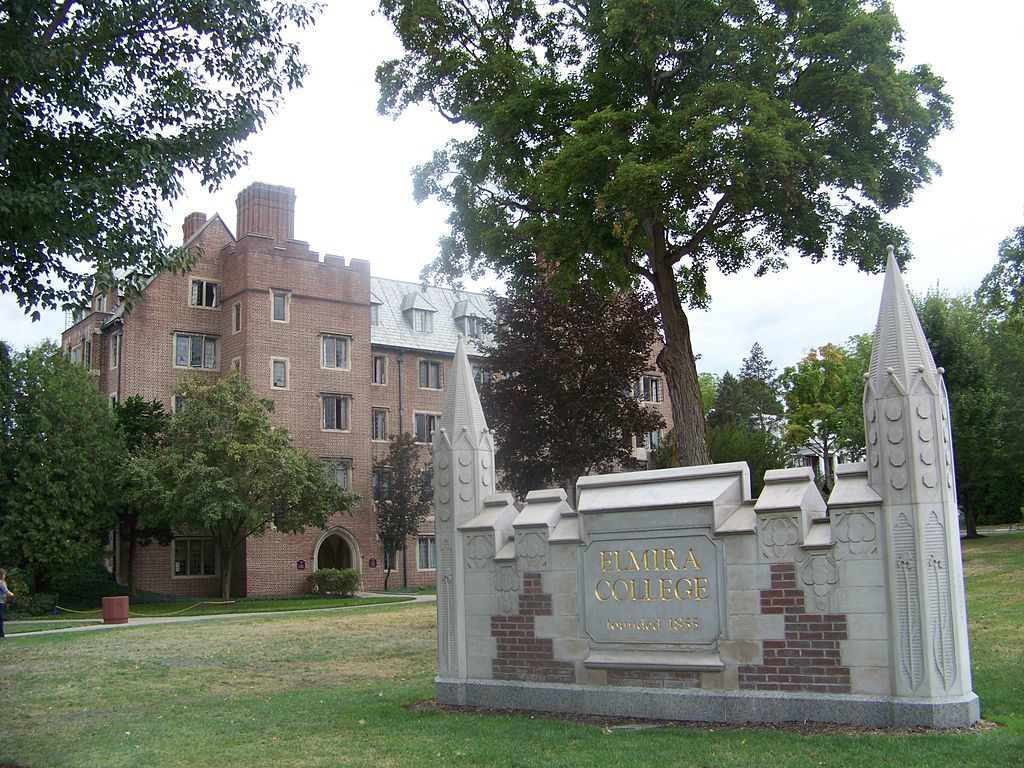
While the general trend is for college costs to rise each year, some private colleges have decided to buck the trend by significantly lowering tuition costs, according to a recent CBSNews article.
Two dozen private colleges have cut tuition since 2016, according to the National Association of Independent Colleges and Universities.
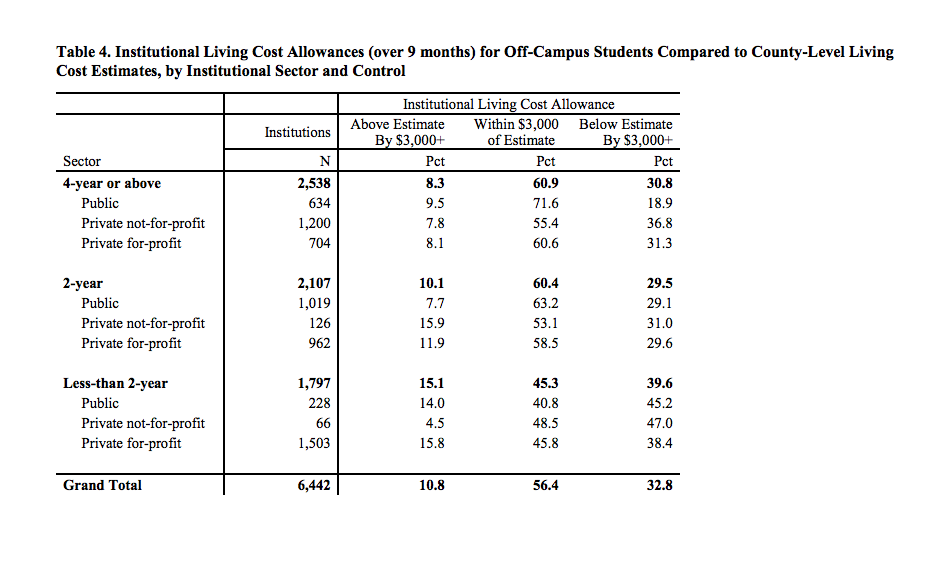
You’re prepared for college. You know exactly how much you’ll have to pay, have borrowed the appropriate amount, and shouldn’t have any unexpected expenses. Right? Not so fast, say researchers. If you planned for college costs using your college’s cost of living estimates, there’s a good chance the amount of money you’ve budgeted will fall […]
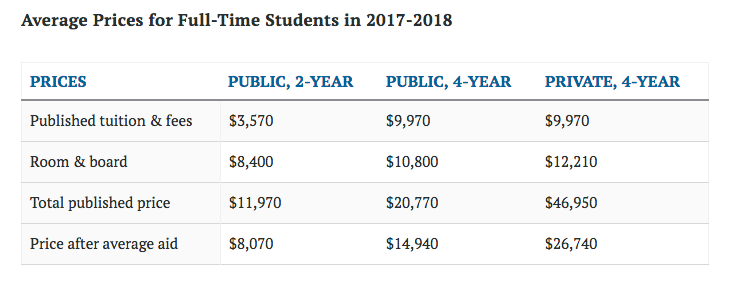
We’ve written in the past how net price — the price you actually pay for college after financial aid, grants and scholarships — is more important than a college’s published price.
Many colleges have high sticker prices, but end up being affordable because they have generous financial aid policies.
Unfortunately, because the rise in financial aid hasn’t kept up with rising costs, the net price of college has risen for the sixth straight year, Money reports.
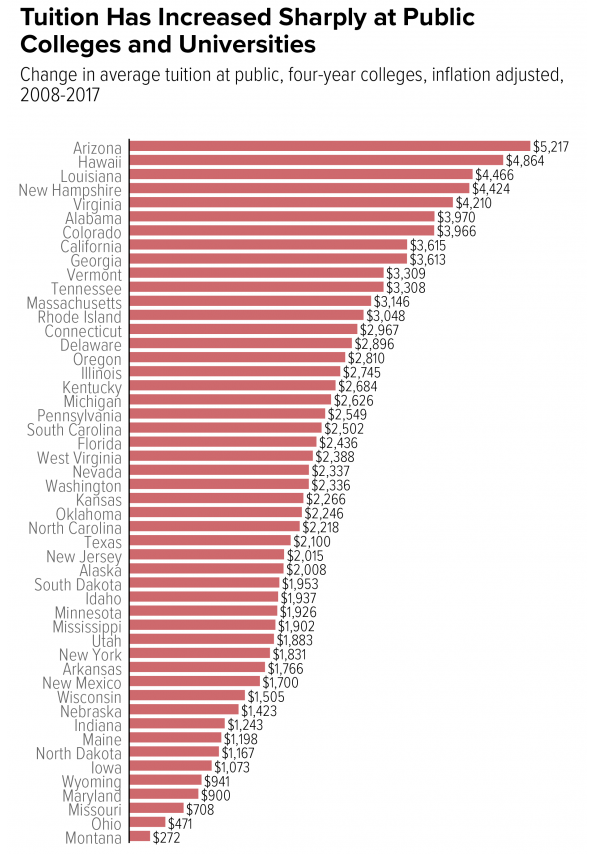
With college as expensive as it is now, public colleges have been touted as a good alternative for students looking to limit college costs.
But, like private colleges, tuition at public colleges across the country has risen rapidly over the past ten years.
Between 2008 and 2017, the average cost of attending a four-year public college went up in every state, even adjusting for inflation, according to a recent report by the Center on Budget and Policy Priorities, as reported by MarketWatch.
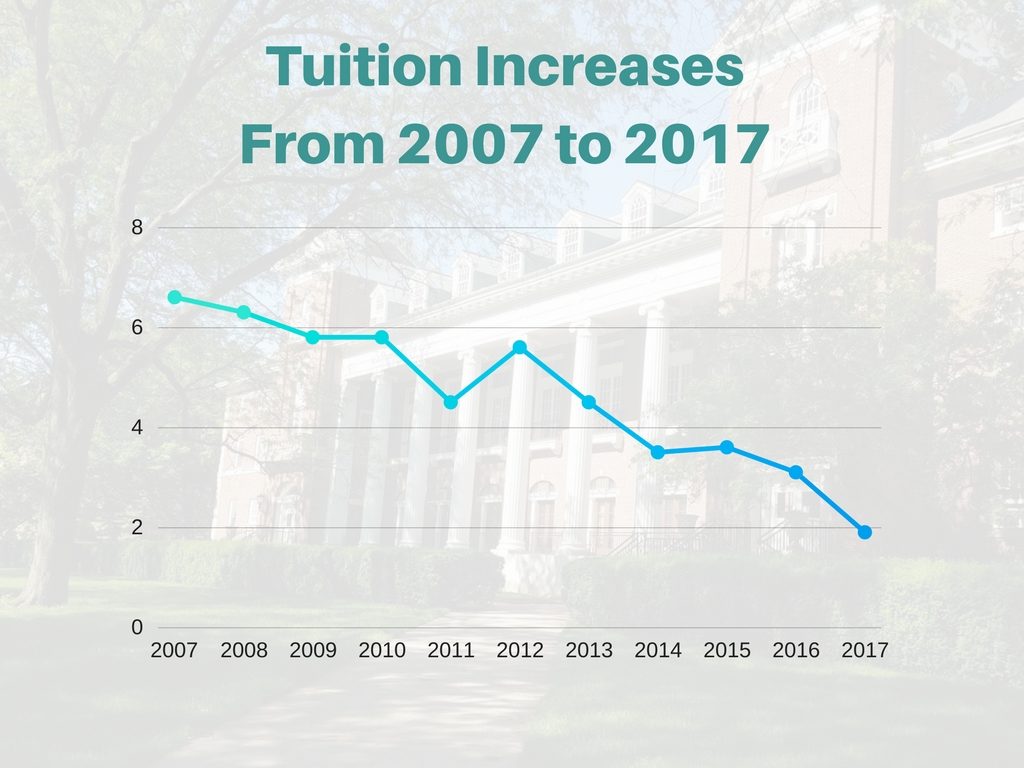
It seems there’s a light at the end of the college cost tunnel.
While college costs are higher than they’ve ever been (and continuing to rise), the yearly increases are, finally, slowing down, according to new data from the Labor Department.
The department found that over the past 12 months, tuition rose by just 1.9 percent–the lowest rate since before 2007, StudentLoanHero notes.
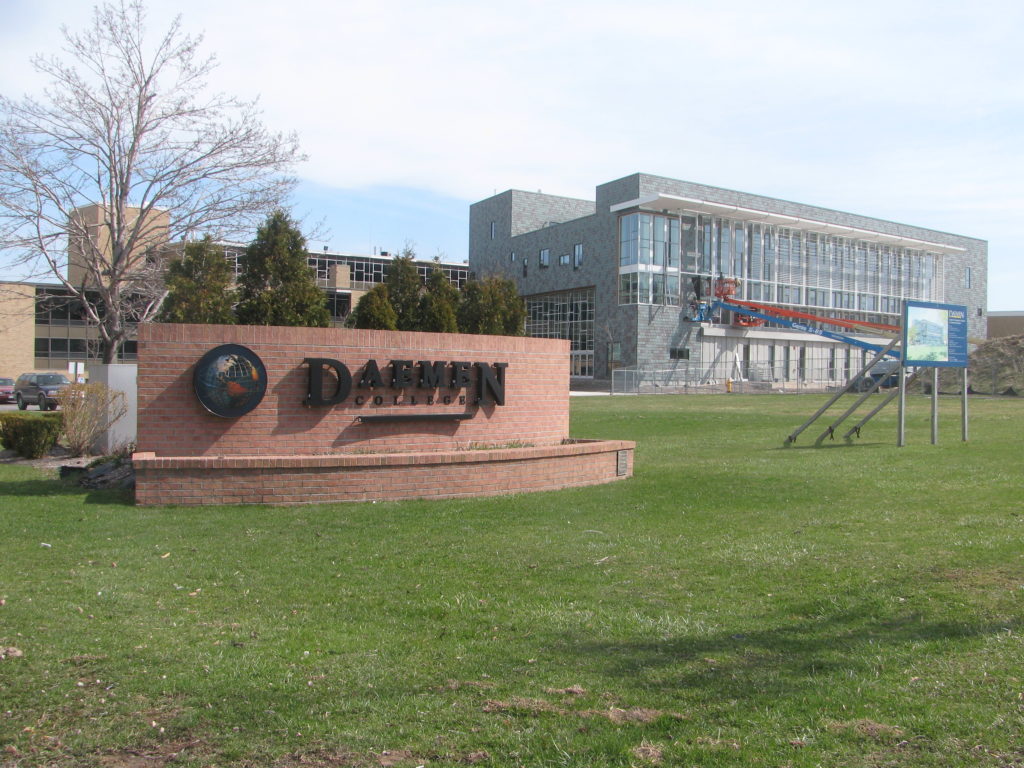
There’s been plenty of talk (and controversy) over the Excelsior Scholarship program, which will provide students in New York from families under specific income levels with free tuition at state public colleges.
One new aspect of the new free college initiative that’s been overlooked by many is the Enhanced Tuition Awards Program, which provides up to $6,000 for students who choose to attend private colleges instead of one of the state’s SUNY or CUNY colleges.
But it hasn’t been all smooth-sailing for this program, either. In fact, a majority of the state’s private colleges are choosing not to participate, The Journal News reports.

College is expensive enough when it lasts four years. But the majority of college students don’t graduate in four years–and the additional years and courses they take can significantly increase their college costs.
Every extra year a bachelor’s degree-seeking student spends in college costs an average of $68,153 in additional tuition, fees, and living expenses, plus forgone income, Complete College America estimates.
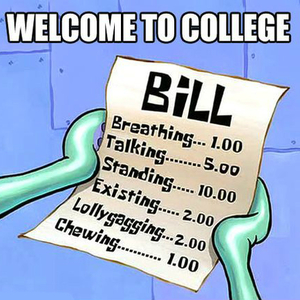
It’s not just tuition and room and board that are causing college costs to skyrocket: college fees are as well, according to The Hechinger Report. In fact, fees have been increasing far faster than tuition, nearly doubling at four-year public universities and more than doubling at community colleges since 1999-2000, according to a recent study. Hidden […]
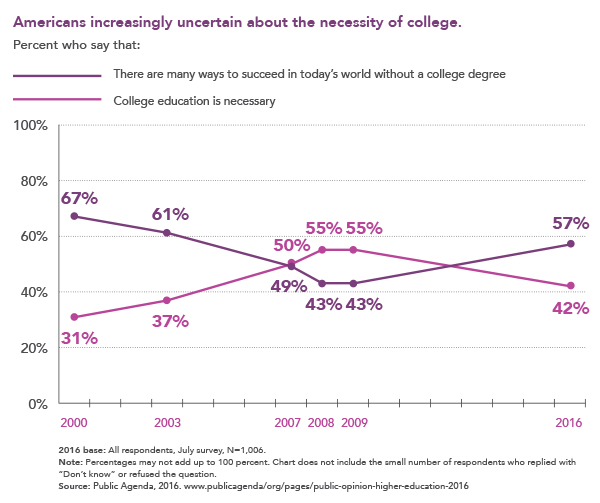
With the cost of college continuing to rise, many graduates are questioning whether their own degrees were worth the investment, according to the Hechinger Report.
Half of college graduates surveyed in a recent Gallup Poll said they weren’t sure whether their degree was worth the money.
And nearly half of graduates surveyed in August by Public Agenda said a higher education is no longer necessarily a good investment — particularly because of how much debt many students take on in order to pay for their college degree.